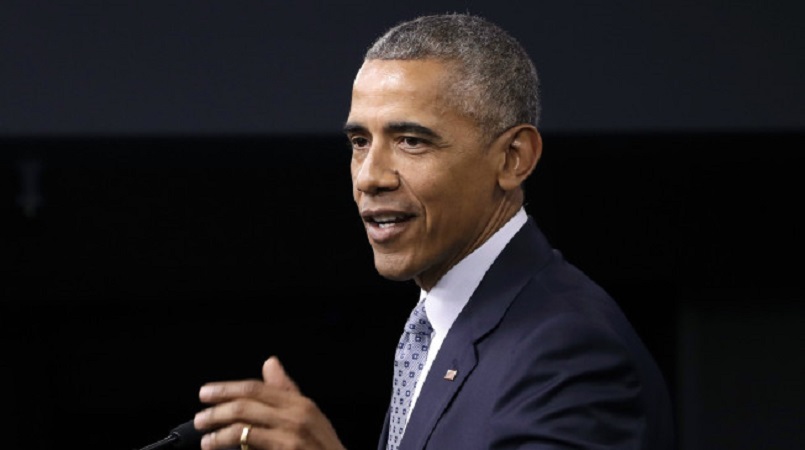
The advertised purpose of President Barack Obama's pre-vacation news conference Thursday was to highlight gains in the war against ISIS in Iraq and Syria with the Pentagon as a backdrop.
But for all his talk of terrorism, Russia and other geopolitical challenges, the underlying argument he wanted to make was clear: it's a serious business being commander-in-chief and the Republican who wants his job isn't fit for the Oval Office.
Obama ridiculed Donald Trump's recent suggestion that the election system could be rigged, called on the candidate to act like a president since he's soon to be briefed on confidential information and implied that he didn't believe the billionaire businessman could be trusted with America's nuclear codes.
"Just listen to what Mr. Trump has to say and make your own judgment with respect to how confident you feel about his ability to manage things like our nuclear triad," he said in response to a question from CNN's Barbara Starr. "This is serious business."
Unserious, he suggested, was Trump's warning that November's election could be rigged against him: He mocked the assertion as "ridiculous."
"Of course the election won't be rigged. What does that mean?" Obama said, struggling to disguise his contempt. "If Mr. Trump is suggesting that there is a conspiracy theory that is propagated across the country, including in places like Texas where typically it is not Democrats who are in charge of voting booths, that's ridiculous. That doesn't make any sense."
Obama, in his last planned public appearance before his annual vacation in Martha's Vineyard, said he had never heard of anyone complaining that they had been cheated before the score had been tallied.
"My suggestion would be, you know, go out there and try to win the election."
"If Mr. Trump is up 10 or 15 points on Election Day and he ends up losing, then, you know, maybe he can raise some questions," Obama said. "That doesn't seem to be the case at the moment."
Obama speaks out
It was the latest in a string of recent presidential rebukes to the GOP nominee. Obama hit out at Trump just two days after branding him unfit to be commander in chief from the podium in the White House's East Room. His intervention underscored the unusually prominent role the current occupant of the Oval Office is playing in the election to decide his successor as he tries to ensure that Democrat Hillary Clinton wins in November.
Obama did say, however, that should Trump beat Clinton, he would fulfill his duty to help the incoming president despite his criticisms of the billionaire's fitness for the Oval Office.
"If somebody wins the election and they are president, then my responsibility is to peacefully transfer power to that individual. And do everything I can to help them succeed," he said.
But, he said, "We're going to go by the law which is that -- tradition and the law -- that if someone is the Republican nominee for president, they need to get security briefings so if they were to win, they are not starting from scratch in terms of being prepared for this office."
According to legal experts, however, there is no law requiring security briefings of presidential candidates, just a decades-long practice of doing so.
"They have been told: These are classified briefings. If they want to be president, they have got to start acting like (a) president. That means being able to receive these briefings and not spreading them around," he said.
Can a rising Obama help Hillary Clinton?
Trump and Clinton are expected to soon start getting classified intelligence briefings in the run-up to the election. Some Trump critics have contended that the billionaire's unrestrained tongue could put US secrets in danger.
Republicans, meanwhile, have argued that Clinton should be barred from the briefings, saying she put classified information at risk through her use of a private email server for official business while secretary of state.
Though the briefings don't go into sources or methods of collecting intelligence, as they are considered extremely sensitive, they will offer a broad look at the threats and challenges facing US national security.
